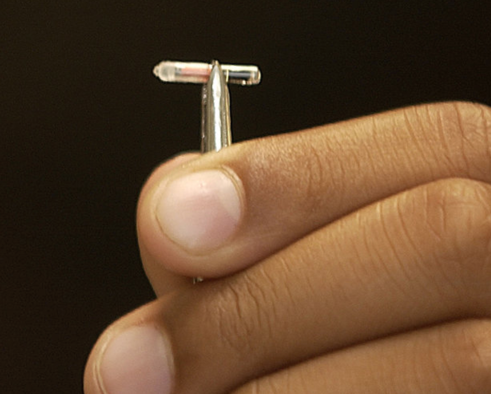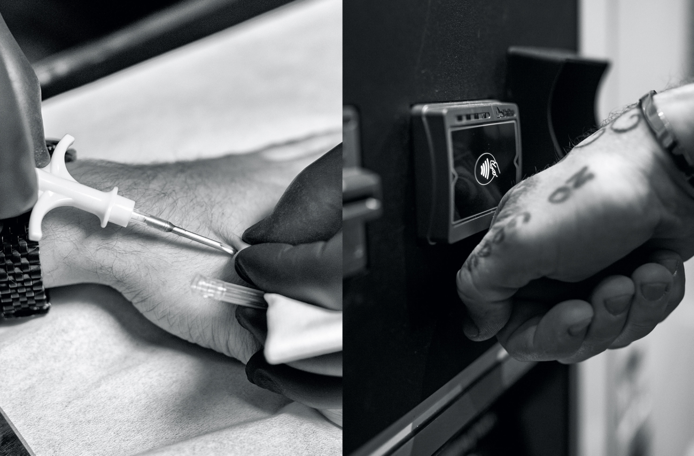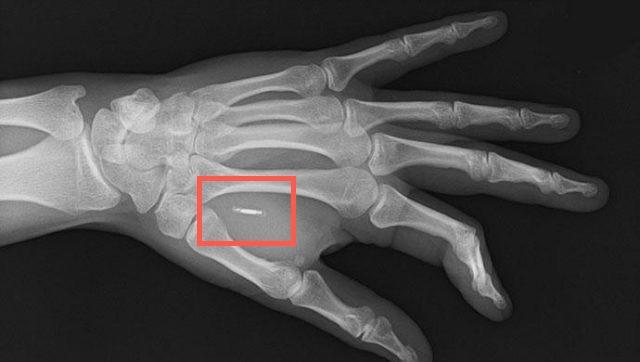by Tyler Durden
A startup in Sweden called Biohax International has microchipped more than 4,000 people across the country who can use their hands to open secured doors, replace credit cards and cash, pay for transportation tickets, and share emergency information with medical personnel, reported New York Post.

The microchip is about the size of a grain of rice, and the procedure to inject it into a hand costs about $180 -- is similar to getting a vaccination.
"It's very 'Black Mirror,'" Swedish scientist Ben Libberton told The Post.
Biohax founder Jowan Österlund told Fortune magazine that his chips are considered "moonshot" technology -- has sparked institutional interest in the last 6 to 8 months. Some have even said they want to take the technology of microchipping humans to a global level.
"Tech will move into the body," Österlund said. "I am sure of that."
Österlund said the tiny microchips are implanted in the hand allows people to unlock doors or gym lockers, operate office printers, pay for lunch, or purchase a train ticket, all with their hand.

The company has positioned itself for the cashless society, expected to flourish in Europe in the next several years.
Österlund insists the technology is completely safe -- but said some people fear the chips could fall victim to cybercriminals.

Libberton told The Post that the potential health benefits of internal microchips would be accurate health metrics taken from within the body.
"Think if the Apple Watch could measure things like blood glucose," he said.
Libberton suggested that if big corporations got a hold of this highly personalized data - it would be super invasive.
"The problem is, who owns this data?" he asked. "Do I get a letter from my insurance company saying premiums are going up before I know I'm ill? If I use the chip to buy lunch, go to the gym and go to work, will someone have all of this info about me? Is this stored and is it safe?"
Libberton added, "It's not just about the chip, but integration with other systems and data sharing."
Those who have been chipped don't have to worry about being followed by the government or corporations, that is because the chips aren't powered, thus cannot support GPS or 3G, LTE, and or 5G.
There are a handful of companies progressing human microchipping at the moment, such as Cyberise. Me, in Melbourne, Australia, Three Square Market in Wisconsin and Dangerous Things in Seattle.
The proliferation of human microchipping and the cashless society could become more widespread when governments ban cash after the next global reset.
So basically Biohax is an eyeopener into how you will pay for things in 2025.
No comments:
Post a Comment